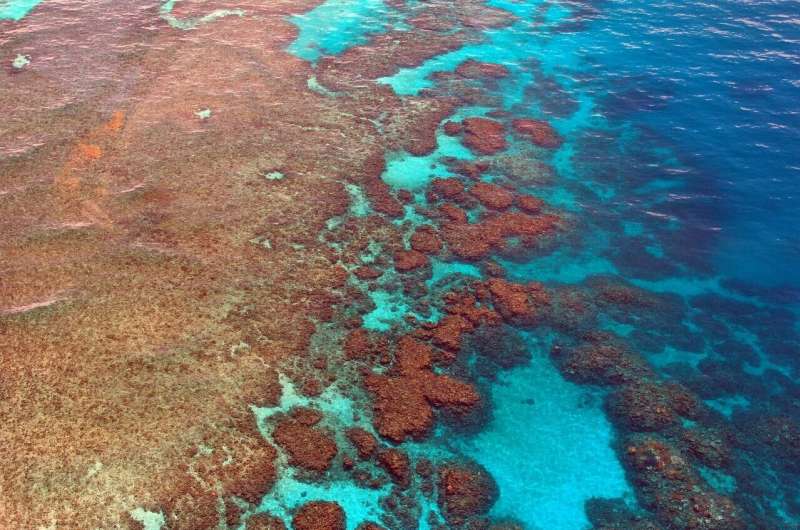Credit: CC0 Public Domain
A new international study led by Monash University climate scientists has found reef sand is dissolving much quicker than previously thought due to the impact of microbes.
The study, published recently in Geochimica et Cosmochimica Acta, was led by Dr. Adam Kessler from the School of Earth, Atmosphere and Environment.
"We know that climate change is acidifying the oceans," Dr. Kessler said.
"And we know that this is bad for ocean life, such as coral, shellfish and plankton.
"But our study has shown that the ocean is just about acidic enough now that the sand that makes up the reef will soon start to dissolve—specifically carbonate sands, or those bright white sands you see in Queensland."
The study found that microbes—such as bacteria and algae—living in the sand are responsible.
Microbes living in microscopic cracks in the grains of sand produce tiny acidic zones, in which the sand starts to dissolve.
"The microbes seem to be performing a lot of fermentation instead of other metabolisms that we would expect, which is surprising, but also seems to contribute to the acidity," Dr. Kessler said.
"And this has not been factored into previous estimates of how soon the reef might start dissolving."
The research is a collaboration between Monash University, Southern Cross, and a number of international universities, and was conducted at Heron Island, about 80km off the coast of Gladstone.
Dr. Kessler and his team used controlled laboratory experiments to measure how the acidity and oxygen content of water might affect rate of dissolution in permeable reef sands.
They also measured the types of chemical reactions performed by the microbes that naturally live on the reef.
"At the current rate of acidification, our reefs are expected to be net dissolving in the next 50 years, and this new research adds to a body of work trying to understand how this might affect life on our reef, and the reef itself," Dr. Kessler said.
Dr. Kessler explains that the study does not mean the reef will dissolve any time in the immediate future.
"We don't know what the effects of even a little bit of dissolution might be, and even if it takes a millennia, we don't want to be the ones who stood by and watched it happen," he said.
More information: Adam J. Kessler et al. Pore water conditions driving calcium carbonate dissolution in reef sands, Geochimica et Cosmochimica Acta (2020). DOI: 10.1016/j.gca.2020.04.001
Journal information: Geochimica et Cosmochimica Acta
Provided by Monash University
























